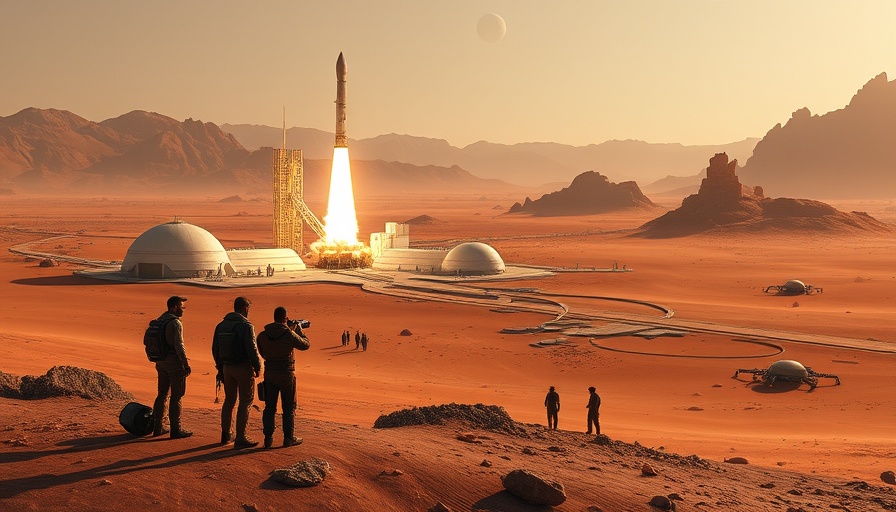
Elon Musk's Vision for Humanity's Future: The Case for Mars Colonization
In a recent interview, billionaire entrepreneur Elon Musk, the founder of SpaceX, outlined his ambitious goal of establishing a human presence on Mars. His rationale is pragmatic and deeply rooted in long-term survival: 'Eventually, all life on Earth will be destroyed by the sun.' This stark statement has reignited discussions around the necessity of becoming a multiplanetary species as a form of 'life insurance' for humanity.
The Dangers Lurking in Our Solar System
Musk emphasized that Earth faces inevitable existential threats due to the sun's life cycle. In about 450 million years, it is predicted that increased solar intensity will render Earth inhospitable, boiling our oceans and stripping away the atmosphere. Ultimately, in approximately 5 billion years, the sun will transition into a red giant, engulfing Earth entirely. This gradual yet unavoidable timeline underscores the pressing need for humanity to expand beyond our home planet.
The Role of SpaceX and the Technology Behind Colonization
SpaceX is developing Starship, the largest and most powerful rocket ever built, as part of Musk’s vision. Starship is designed for reuse, significantly lowering the costs of space travel and making Mars settlement more economically feasible. Recent test flights have shown promise, signaling that the technology necessary for interplanetary travel is rapidly advancing. As SpaceX prepares for its next launch, the urgency to overcome engineering challenges grows in tandem with the ticking clock of planetary extinction.
Broader Implications of Space Colonization
While Musk's vision is primarily focused on Mars, its implications extend to innovation in various fields. Space colonization could drive advancements in sustainable technologies, robotics, and even artificial intelligence. The challenges of living on a different planet beckon solutions that could revolutionize how we utilize resources, energy, and technology on Earth. For instance, innovations developed for sustaining human life on Mars could also benefit current environmental challenges, promoting sustainability.
Societal Perspectives on Space Exploration
The concept of colonizing another planet often brings forth diverse opinions. Some critics argue that instead of focusing on Mars, resources should be allocated to solving pressing social issues on Earth. Meanwhile, supporters assert that the exploration of space is humanity's next logical step towards survival and progress. This debate reflects our values and priorities as a society, questioning whether we should look to the stars while challenges persist at home.
What Lies Ahead: Future of Human Presence in Space
As we stand on the brink of a new era in space exploration, the timeline provided by Musk serves as a reminder of both urgency and possibility. The prospect of colonizing Mars is no longer confined to science fiction; it is an ongoing mission that may soon transform human existence forever. Whether through SpaceX or other initiatives, humanity's journey to become a multiplanetary species is a tangible goal that may redefine our future.
Ultimately, Musk's vision is not merely about survival from cosmic catastrophe, but also about the potential for discovery and innovation that comes with expanding our horizons. His challenge to the world is clear: as Earth faces its fate, are we ready to pioneer new frontiers?
 Add Row
Add Row  Add
Add 




Write A Comment